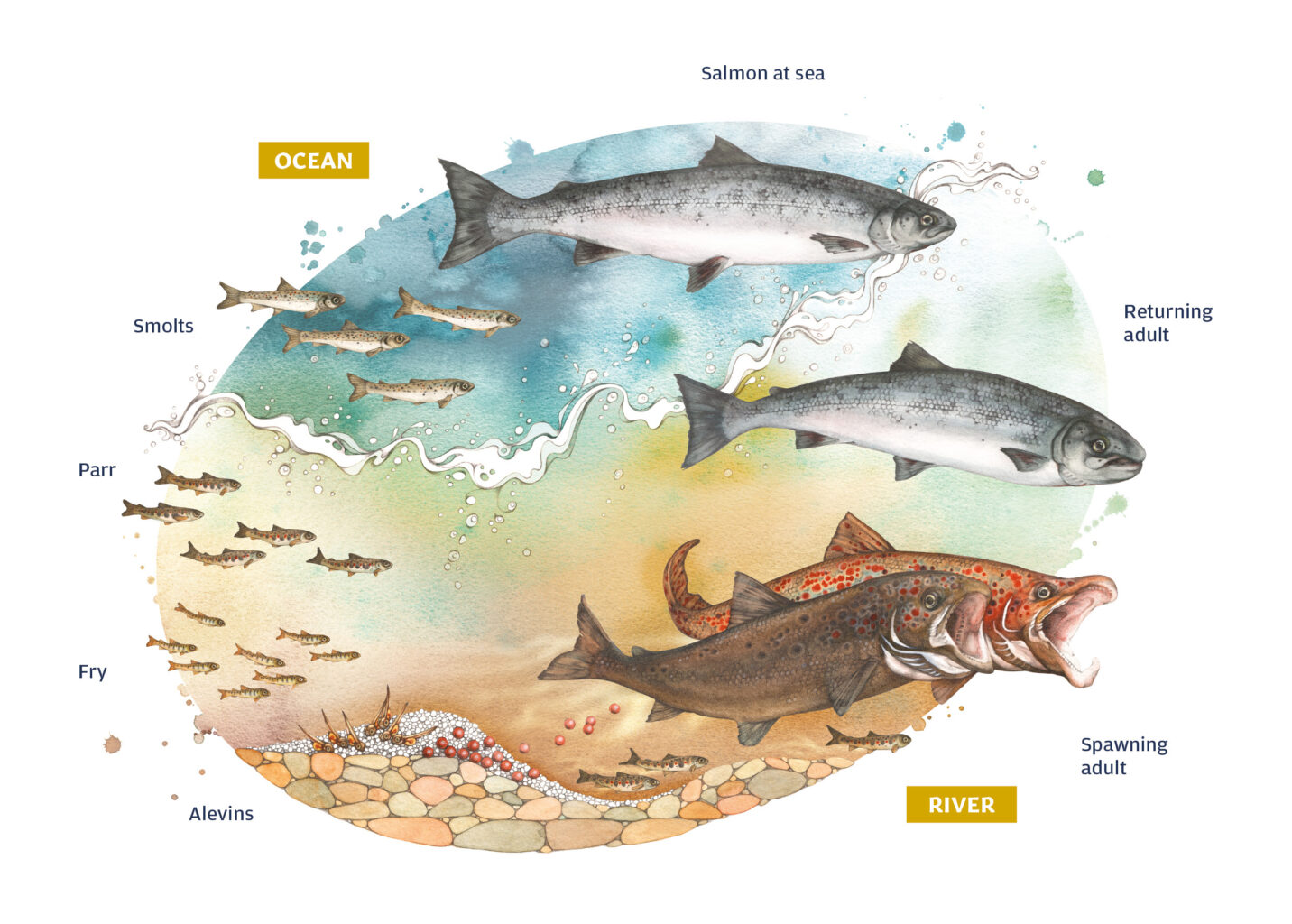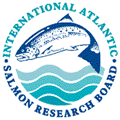Poor Survival at Sea
Poor Survival at Sea
The predominant life cycle of the Atlantic salmon involves migration to the sea where growth is rapid. After a period in fresh water that varies with latitude from one to seven or more years, the young salmon undergo a major physiological change that adapts them to a life at sea. This oceanic phase can last from one to four years before the salmon return to the rivers of their birth to spawn and complete the cycle.
The current period of low abundance of Atlantic salmon appears to be related to poor survival at sea.
Many factors, operating individually or in combination, may affect marine mortality of salmon or, if sub-lethal, life history traits such as age at maturity. The lack of understanding of the factors affecting salmon at sea is a serious concern and potentially an obstacle to rational management of the resource.

